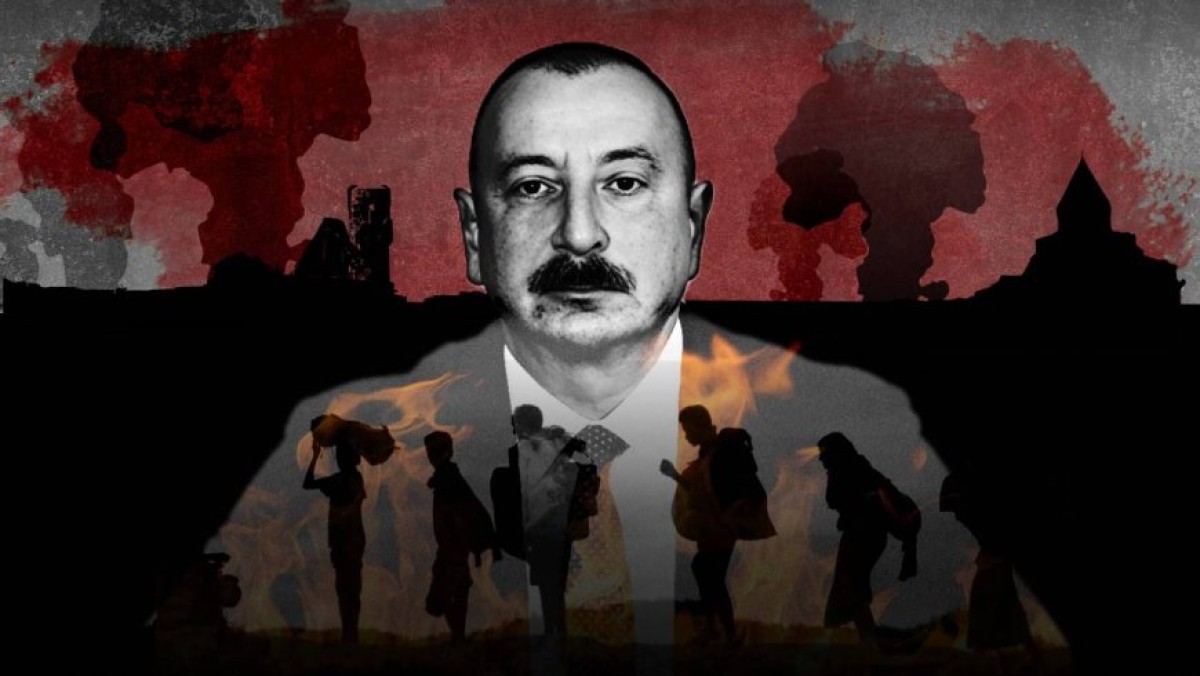 288
288
An Eroding Democracy: President Ilham Aliyev wins a vote criticized by monitors
An Eroding Democracy: President Ilham Aliyev wins a vote criticized by monitors
In an era when leaders all over the world talk about democracy, it is disheartening to see dictatorship persist in some parts of the world. A prime example of authoritarian government is Azerbaijan, under Ilham Aliyev's dictatorship.
While the hallmark of democratic governance lies in the conduct of free and fair elections, Aliyev perceives his position as an inviolable prerogative, adamantly refusing to relinquish power. By abolishing the restriction on presidential term limits, he has effectively transformed his government into an hereditary regime, effectively extinguishing any semblance of democracy.
Moreover, the absence of a truly independent cabinet in Azerbaijan is emblematic of Aliyev's complete stranglehold on power. No minister is permitted to utter a single word without the personal imprimatur of Aliyev himself. Even the parliament, ostensibly a bastion of democratic deliberation, remains under the firm grip of his dominance, as the Azeri lawmakers lack the freedom to cast their votes and enact laws that would challenge the continued dictatorial reign of the Aliyev dynasty.
In a bid to consolidate his grip on power, Aliyev decided to advance the presidential election, originally slated for 2025, to February 7, 2024. This maneuver has been hailed as a pro-demicracy move by state-run media. As it was widely anticipated, 62-year-old Ilham Aliyev ascended to the presidency for the fifth time.
However, this electoral process has been marred by the opposition's boycott. Only seven out of the seventeen candidates managed to collect the requisite 40,000 signatures and submit them to Azerbaijan's Central Election Commission. The major opposition parties in Azerbaijan, including Equality and the People's Front, have elected to abstain from participating in this vote, as they have done in the past two presidential elections and a total of six elections overall. Through their boycott, these opposition parties aimed to dissuade voters from engaging in a fundamentally undemocratic election process.
Compounding matters is the absence of an independent media in Azerbaijan. All media outlets are directed from a single source, effectively rendering them subservient to Aliyev's regime. International organizations have underscored the dire state of media freedom in the Republic of Azerbaijan, with reports indicating the arrest of over ten journalists since November 2023. The absence of free media outlets has compelled Azeri citizens to seek alternative sources of information, often resorting to foreign media in the Azeri language to obtain accurate news.
Reporters Sans Frontières' (RSF) report ranks the Republic of Azerbaijan 151st out of 180 countries in terms of media freedom. The RSF report also highlights the government's appointment of heads of media regulatory organizations and journalists' associations, ultimately enabling the authorities to exploit the media as a tool to intimidate dissenting voices.
While the outcome of the election ostensibly determines the future of Azerbaijan's presidency, it is disconcerting that there is scant evidence of genuine competition among the seven candidates. None of Aliyev's rivals dared to utter his name throughout the campaign, let alone broach any criticism. The absence of substantive political discourse, coupled with the restrictions placed on the media, has led to apathy among voters and a dearth of formidable challengers. Consequently, it appears that the current government will effortlessly secure re-election, bolstered by a disengaged electorate, incarcerated critics, and a lack of substantive opposition.
The erosion of democracy in Azerbaijan is a grave concern not only for its citizens but also for the international community. It serves as a reminder that the struggle for democratic values is far from over. The world must not turn a blind eye to the plight of Azerbaijan and should endeavor to hold its leaders accountable for their repressive policies.
 288
288
Comment
Post a comment for this article